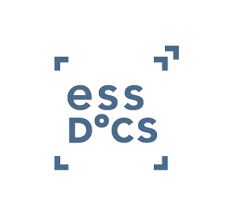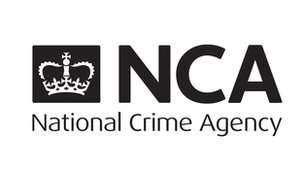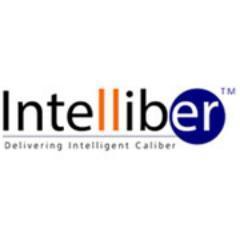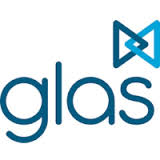Published
- 09:00 am

As retail banking goes through a period of unprecedented change, banks are looking more than ever to cut costs and streamline processes, while discerning customers continue to demand the highest standards in customer care. Self-Service Banking Europe 2017 provides a crucial forum for banks, independent deployers, solutions providers and industry experts to share knowledge and best practice, in order to navigate a course through this challenging but exciting time for the industry.
RBR’s Managing Director, Dominic Hirsch commented: “It has never been more important for retail banks to understand the needs of their customers and to learn about the latest technology at their disposal. This event provides the perfect opportunity for them and other industry stakeholders to learn, network, and share expertise.”
Vibrant speaker programme features visionary keynotes and expert insights
A packed two-day speaker programme features thought leadership addresses from some of the most important players in the banking and payments sectors, including the CEO of Diebold Nixdorf, Andy Mattes, on how to win customers in a connected commerce era, Microsoft on empowering financial services in the digital economy, Bank of America on designing a user-friendly self-service channel, and Google on the role of mobile payments in the emerging self-service ecosystem.
The programme also includes a wide range of bank case studies from across Europe and further afield, with leading institutions such as Barclays, Citibank, Santander and UniCredit sharing their experiences. Key themes include next-gen ATM transactions, digital transformation, ATM outsourcing, contactless, streamlining self-service operations, and machine learning.
Major expo showcases the newest self-service banking technology
In addition to its world-class speaker programme, the event features a sold-out expo area, with exhibitors* showcasing cutting-edge banking technology, from the latest ATM and self-service hardware and software to payments platforms and security solutions.
Related News
- 01:00 am

essDOCS today announced the acquisition of eCertify Pty Ltd, the inventor of the electronic Certificate of Origin (eCO). eCertify provided the first eCO solution in 2008. Today, its eCOs are used by 13,000+ companies and 120+ Chambers of Commerce in 6 countries.
eCertify provides Chambers of Commerce, Authorizing Bodies, exporters and freight forwarders an online solution for application and issuance of eCOs, enabling them to eliminate time-consuming and inefficient, manual paper-based processes. eCertify is the leading eCO solution globally, with Chambers across Australia, Canada, New Zealand, Norway, the United States and South Africa.
“With the additional resources now available to eCertify, we are planning to grow our eCO footprint extensively” said Carman Rossi, eCertify Founder and Chairman of the Board. He continued, “we will add Dutch eCOs later this year, and are planning an aggressive expansion to take us to 25 countries over the next couple of years organically and via partnerships.”
Based in Adelaide, Australia, eCertify will continue to operate as a separate company, but will be supported by essDOCS’ global footprint. The acquisition was completed through essDOCS Ventures, the Group’s investment and partnership arm.
“eCertify is an incredible company”, said Alexander Goulandris, essDOCS CEO and eCertify Director, “and I am excited to be able to assist in its continued growth. For me, electronic certificates of origin are key to a complete paperless trade solution, so this acquisition will provide a more holistic solution for our customers.”
Related News
- 01:00 am

Dutch online discount broker BinckBank has acquired robo-advisory startup Pritle for EUR12.5 million.BinckBank says the acquisition provides the momentum for the firm to expand its digital wealth management activities and geographic reach.
Founded by former ABN Amro executive Thomas Bunnick, Pritle helps users to define and track their financial operations through automatic portfolio re-balancing and personalised recommendations.
In 2015, the firm acquired Fundix, the broadest funds supermarket and largest independent online wealth manager in The Netherlands. In 2016 Pritle launched its services in Belgium, Switzerland and Austria.
Pritle has 6,500 customers with approximately €60 million in assets and a team of 28 employees who will transfer to BinckBank upon closing.
Related News
- 09:00 am

CreditEase, a $1 billion Chinese FinTech investment fund operating abroad, has announced a series of investments in US-based financial technology startups.
It was founded in December 2015 by former Donaldson, Lufkin & Jenrette investment banker Ning Tang, has participated in a series C financing round in US electronic bond trading platform Trumid, and a series B round in capital markets corporate access firm, WeConvene. It has also joined a seed round in US-based P2P insurance outfit WorldCover.
An offshoot of the CreditEase marketplace-lending platform, the fund has so far made a total of eight investments since its launch, including the new financing rounds announced today. Other portfolio investments include Blockchain-based payments firm Circle, Tradeshift and car finacing startup DYCD.com
Anju Patwardhan, senior partner of CEFIF, says: “We believe the Chinese fintech market will continue to grow in 2017 and beyond, as many 3-5 year-old companies have grown into large-scale operations. We expect many of these to mature into high-quality, mid-to-late stage companies. Similarly, we anticipate a slew of promising early and mid-stage growth companies in the US market, due to the improving climate for investment, as well as the more sustainable development of fintech sector.”
Related News
- 08:00 am

The Bank of England's FinTech accelerator programme has introduced a new community forum for innovation talks and two new proof of concept trials exploring the use of AI and distributed ledgers.
Fintech community members will be invited to meet with the Bank two to four times a year to share updates on trends and developments in the sector and participate in quarterly networking and knowledge-sharing events. The BofE community network currently consists of eighteen firm operating across the full fintech ecosystem, including startups, regulatory bodies, industry lobbies, legal firms and VCs.
Launched in June 2016, the central bank's fintech accelerator seeks to work in partnership with third party tech firms to help provide insights on new approaches to Bank operations and wider marketplace developments.
The latest proof of concept trials to emerge from the accelerator include and AI-driven application from MindBridge, and a cross-border payments pilot with Ripple. MindBridge’s AI auditor detects anomalies in financial transactions and reports. "We are using it to explore the benefits of machine learning for analysing the quality of regulatory data input," states the Bank.
The engagement with Ripple will seek to demonstrate the synchronised movement of two different currencies across two different real-time gross settlement systems. It comes as the bank works towards a 2020 timeframe for the overhaul of the country's real-time gross settlement system.
"The aim is to show how this kind of synchronisation might lower settlement risk and improve the speed and efficiency of cross-border payments," the Bank says.
An earlier POC with Anomali on cyberthreat intellgience sharing led to an extended working relationship to explore the production of a working application for commercial deployment.
Related News
- 02:00 am

Fraud follows the channels of adoption, but as we get more connected, the easier it will become to prove our identity. This week the National Crime Agency and National Cyber Security Centre reported that a particular kind of security breach, ransomware, has grown significantly over the past year, with the popularity of internet-connected gadgets increasing the risk of attacks for consumers.
Keiron Dalton, a digital identity expert from Aspect Software, suggests that the so-called Internet of Things has had a major impact on trust and security, and will continue to do so as more and more consumers adopt technologies such as fitness trackers, smart watchers and smart TVs. He said: “The more devices that are connected, the more challenging authentication and trust becomes as our digital lives are ever more distributed. Think of it this way – each device uses some of your personal data, and whether that’s an email address or full credit card details, pieces of our ‘identity’ are fragmented and essentially blasted off into the ether.”
Dalton believes that while organisations such as device manufacturers and the associated software providers must to do better in offering protection from ransomware and other takeover-style attacks. However, he said: “Our individual digital identities are growing at a rate of knots; either we run in circles patching vulnerabilities as the issue gets worse, or organisations with a duty to protect consumers from online threats (such as banks and mobile network operators) need to take advantage of the data assets that they have in the shape of all of these devices.”
Dalton commented: “It’s not just smartphones that are vulnerability hotspots - each connected device has an element of vulnerability that can be exploited. To be fair to the consumer, nobody considers the personal security risk when they run around with their fitness tracker on, especially as the data is being used for good reason. However, there is a massive opportunity for organisations. Since cyber-crime – and in particular fraudulent activity – always follows the channels of adoption, all of the data generated by each device could be used to glean new insight to protect us and remove friction from our digital lives.
Related News
- 01:00 am

ICS Financial Systems (ICSFS) is the world software and services provider for banks and financial institutions. It will showcase at the Sub‐Saharan Africa Islamic Finance Convention & Innovation 2017 in Uganda. The event is a new frontier of opportunity of Islamic finance expansion in the region, and will be held at the Sheraton Kampala Hotel, on the 6th of April 2017.
The purpose of the Sub-Saharan Africa Islamic Finance Convention is to build on the gathering’s position as a strong platform for the growth of the industry that will not only help to establish Uganda as an exciting investment destination but also enable the development of the broader Sub-Saharan market. The expansion of Islamic finance in the region concludes in providing new growth opportunities and propelling faster trade and economic growth in Sub‐Saharan Africa.
ICS Financial Systems will be showcasing its flagship, namely ICS BANKS ISLAMIC solutions in stand number 11. It provides a complete suite of banking business modules with a rich sweep of functionalities and features, addressing business needs and automating accounting processes, as needed, to improve a bank’s business performance.
ICS BANKS ISLAMIC has always been a pioneer in utilising the latest technology to serve financial institutions. In addition to its embedded Service-Oriented-Architecture (SOA), the system is deployed in a multi-tiered setup that runs on a web thin client. ICSFS provides fully integrated universal, banking applications that deploy solutions and a range of professional services to automate and streamline banking services.
Sub‐Saharan Africa Islamic Finance Convention: a new conference and exhibition that is envisaged to become the most influential event focused on financial technology innovation in sub-Saharan Africa The purpose of the Sub-Saharan Africa Islamic Finance Convention is to build on the gathering’s position as a strong platform for the growth of the industry that will not only help to establish Uganda as an exciting investment destination but also enable the development of the broader Sub-Saharan market.
Related News
- 08:00 am

Small businesses are regarded as one of the banes of being an enterprise. SMB's have their own kinds of challenges and their success majorly depends on the support received from the ecosystem or the visionary strengths of its management team.
According to Entrepreneur 360 recognized Intelliber Technologies as one among top 360 companies and it is now considered as one of the Best Privately-Owned Businesses in America. Entrepreneur 360™ releases its lists through a magazine named as Entrepreneur magazine. This magazine includes a list of highly anticipated companies, which is also known as Entrepreneur 360™ list of companies, which comprises of Best Entrepreneurial Companies in America.
In this Second Annual Entrepreneur 360™ List, which was issued on 25th October 2016 comprises of 360 companies in which America's Best Privately-Owned Companies are showcased. According to this list Intelliber Technologies (Previously Intelliber) has been ranked 332nd Best Company in America in the 2nd annual list of Entrepreneur 360 Companies. This list is based upon comprehensive study where independently owned companies are ranked using exclusive algorithm and advanced analytics. This algorithm is fabricated on a scorecard, which is measured on the basis of four metrics innovation, growth, leadership, and impact, which reflects a true entrepreneurship. Entrepreneur 360™ looks for crazy business ideas and identifies 360 small business companies in America every year and.
Related News
- 05:00 am

GLAS, leading provider of finance administration services, has announced the opening of an office in Sydney, coinciding with the key senior hire of lawyer Kate White. The Sydney office expands the GLAS business in Australia following the opening of its Melbourne office in 2016.
Since entering the Australian market last year, GLAS has seen significant interest in its finance administration services from lenders, borrowers, issuers, and advisers across the loan and debt markets. Specializing in complex deals including loan and bond restructurings, GLAS has already taken key roles in major deals such as the Atlas Iron restructuring; the buy-out of SAI Global, where it acts as Facility Agent and Security Trustee over both First and Second Line debt (named as Syndicated Term Loan B/High Yield Loan Deal of the Year in the Asia Pacific Loan Market Association’s 2016 awards); and more recently Security Trustee for the complex Emeco restructuring, currently underway.
Barnaby Webb, Head of GLAS Australia, commented: “Since opening the office in Melbourne towards the end of last year, we feel extremely fortunate to have been given the opportunity to work on a number of high-profile Australian-based deals enabling us to demonstrate our unique offering. While firms providing similar independent Agent and Security Trustee services have been operating in the European and U.S. markets for a number of years now, it is a relatively new concept to the Australian market. We have been overwhelmed by the positive response received thus far.
We are very excited to have Kate joining us given her deep understanding of the local market and extensive network, as well as fulfilling our wish to replicate the operating model of our highly successful London business through the establishment of a dedicated in-house legal team to service our Australian offices, a key differentiator to other firms that have traditionally operated in this space.
Related News
- 04:00 am

Today’s Annual General Meeting (AGM) of Nordea Bank AB approved the income statement and balance sheet for 2016 and decided on a dividend of 0.65 euro per share. Accordingly, the record date for dividend would be 20 March 2017.
The Board of Directors and the President and Group CEO were discharged from liability for the year 2016. Pernille Erenbjerg, Maria Varsellona and Lars Wollung were elected new board members. The AGM authorised the Board of Directors to decide on issue of convertible instruments. Election of board members Björn Wahlroos, Robin Lawther, Lars G Nordström, Sarah Russell, Silvija Seres, Kari Stadigh and Birger Steen were re-elected board members and Pernille Erenbjerg, Maria Varsellona and Lars Wollung were elected new board members for the period until the next AGM. Björn Wahlroos was re-elected chairman of the Board of Directors. At the subsequent statutory board meeting Lars G Nordström was elected deputy chairman of the Board of Directors, and it was announced that the following persons are employee representatives: Kari Ahola (deputy), Toni H. Madsen, Gerhard Olsson and Hans Christian Riise. Election of auditor Öhrlings PricewaterhouseCoopers AB was re-elected auditor for the period until the next AGM.
Remuneration The AGM resolved a remuneration to the board members amounting to 294,600 euro for the chairman, 141,300 euro for the deputy chairman and 91,950 euro for the other members. In addition, remuneration will be paid for board committee work on the compliance committee, the audit committee and the risk committee amounting to 48,650 euro for the committee chairman and 29,600 euro for the other members and for board committee work on the remuneration committee amounting to 36,050 euro for the committee chairman and 25,750 euro for the other members. Remuneration is not paid to members who are employees of the Nordea Group. Fees to the auditor will be payable according to approved invoice.
Establishment of nomination committee The AGM decided to establish a nomination committee that will present proposals to the next AGM concerning board members, chairman of the Board of Directors and auditor, as well as remuneration to these. The nomination committee will consist of the chairman of the Board of Directors and four other members who are appointed by the four largest shareholders in Nordea in terms of voting rights at 31 August 2017.
Issue of convertible instruments The Board of Directors was authorised, for the period until the next AGM, to decide on issue of convertible instruments in Nordea. The authorisation means that the share capital may be increased by a maximum of 10 per cent of the share capital. The issue of convertible instruments by virtue of the authorisation may take place with or without preferential rights for existing shareholders and will be done on market conditions. The purpose of the authorisation is to facilitate a flexible and efficient adjustment of Nordea’s capital structure to the capital requirements.
Acquisition of own shares in securities operations The AGM decided that Nordea might purchase own shares on an ongoing basis in order to facilitate its securities operations. The holding of such shares must not at any time exceed the lower of either 0.1 per cent of the total number of shares in Nordea or 10 per cent of Nordea’s excess common equity tier 1 ca









